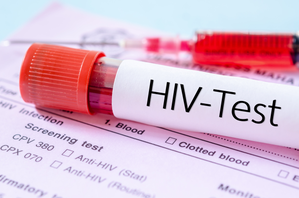New Delhi, July 26 (IANS) An experimental cancer drug may hold the key to clearing HIV from infected brain cells, according to a new study.
The study led by Dr. Woong-Ki Kim at Tulane University, US, reveals that the drug significantly reduced levels of Simian Immunodeficiency Virus (SIV) in the brain — nonhuman primate equivalent of HIV in humans.
For the first time, scientists at the Tulane National Primate Research Center targeted specific immune cells harbouring the virus in the brain.
Dr Kim called the findings “an important step in tackling brain-related issues caused by HIV”. Even though there are effective medications for HIV, it still leads to brain issues.
The drug which “specifically targets the infected cells in the brain, may be able to clear the virus from the hidden areas” — a major challenge in HIV treatment, said Dr Kim.
The challenge of eliminating HIV from the brain stems from the blood-brain barrier, which protects the brain but also prevents effective treatment. The virus hides in long-lived cells known as macrophages, contributing to neurocognitive issues in nearly half of those living with HIV.
In the study, published in the journal Brain, researchers used the small molecule inhibitor BLZ945, previously studied for ALS and brain cancer, to block a receptor in HIV-infected macrophages. This led to a 95-99 per cent reduction in viral DNA in the brain without harming microglia, essential for brain health, or causing liver toxicity.
The study employed three groups of primates: an untreated control group and two groups treated with low or high doses of the drug for 30 days. The high-dose group showed a significant reduction in HIV receptor sites.
The next step involves testing this therapy alongside antiretroviral treatment (ART) to evaluate its potential in a comprehensive HIV eradication strategy.
This innovative approach could revolutionise HIV treatment and significantly improve the quality of life for those affected by the virus.
–IANS
ts/rvt/dan


Comments are closed.